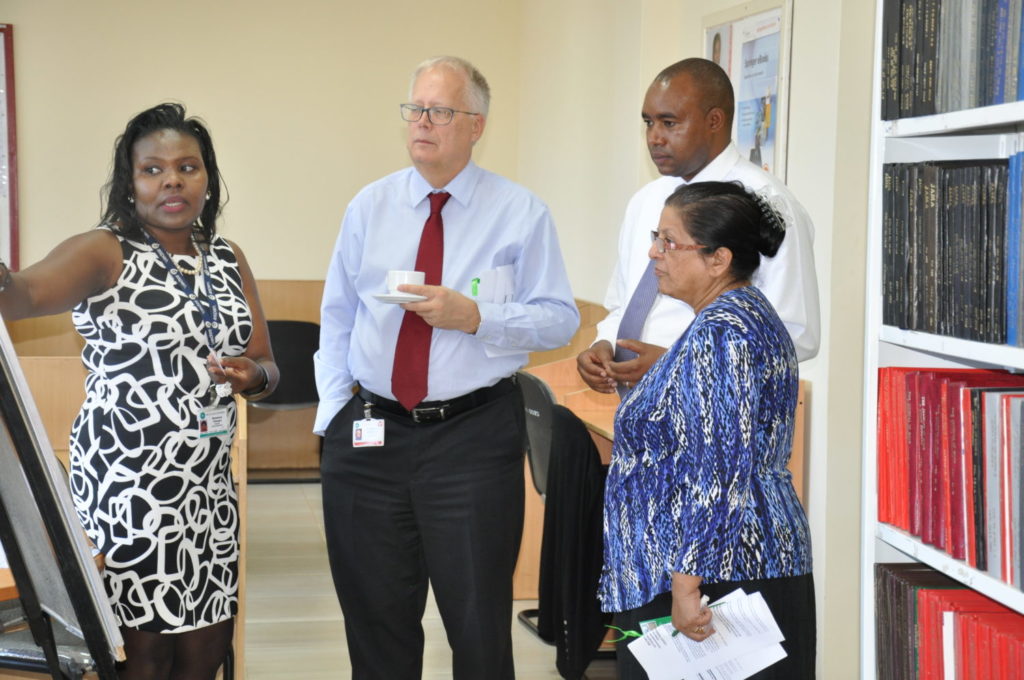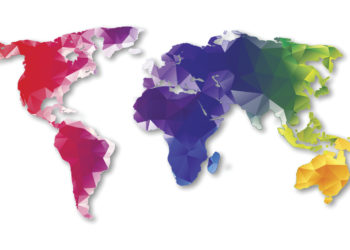Editor’s Note: Today’s post is by Andrea Powell, STM’s Publisher Coordinator of Research4Life. Here she shares recent discussions about obstacles facing researchers in the Global South, not just in accessing scholarly literature but in performing their own research and finding suitable publication channels to communicate it to a global audience.
How can the global scholarly communications community address economic and infrastructure imbalances that prevent researchers from the Global South from achieving equality?
This question was posed to around 30 delegates from publishing organizations, researchers from the Global South, consultants, and service providers at this year’s Researcher to Reader (R2R) conference in London in February in a set of workshops that I was leading with Rob Johnson of Research Consulting. This is part of a wider effort to raise the profile of complementary initiatives like Research4Life and AuthorAID which do so much to improve the information literacy skills of researchers in emerging economies, but which often fly under the radar due to their reliance on volunteer effort or limited outreach budgets.

The problems facing research and researchers in the Global South are, of course, highly complex and multi-faceted, so we have to focus on aspects over which we have some influence. One measurable outcome of increased inclusivity and equality is the number of articles published in peer-reviewed journals (whether they are published in the North or the South), so this gave us a useful touchpoint throughout our discussions. One stark statistic is that, in 2017, research publications from the top 10 countries in the world outnumbered those from the bottom 200 by 5 to 1! Although this data comes from the very comprehensive Scopus® database – it covers over 36,000 titles from some 11,600 publishers – there’s a good chance it still misses some of the journals published in developing countries themselves, which in itself is another challenge for the researchers who want their work to achieve maximum impact and exposure. This challenge was illustrated by Dr Haseeb Irfannulah in his plenary talk at the R2R meeting when he noted that the journal he edited was one of only four journals in Bangladesh that has a Clarivate impact factor.
In our workshop, delegates were divided into four groups, each of which considered one aspect of the research process:
- Accessing research
- Conducting research
- Communicating research
- Using research in policy and practice
During the workshop, it was noted that a further component should be added – evaluating research – especially since the systems of incentives and evaluation are often at the root of some of the challenges faced by the global research community, particularly as we make the transition to Open Science. Indeed, one of the conference speakers, Professor Siva Umapathy, Director of the Indian Institute of Science Education, explained very clearly how the lack of funding for Article Processing Charges (APCs) in Indian government budgets is proving a huge disincentive for researchers to publish in Open Access journals, whatever their origin.
Obstacles and Barriers
Each group identified a number of challenges that researchers in the Global South face, particularly in comparison to their peers in more developed countries.
In terms of access to research, participants noted that, while infrastructure has generally improved in most places and initiatives like Research4Life have opened up access to vast quantities of international publications, there are still gaps in Internet coverage, for example in situations of current or recent war or natural disaster. Participants acknowledged that access to research materials – and dealing with the huge volume of research — are challenges for all researchers, wherever they may be, and that discovery tools and databases (and the skills to use them effectively) are increasingly essential parts of the researcher workflow. They also noted mixed views about Open Access and the risk of the “North” imposing a research communication system on the “South” which may be inappropriate or perceived as neo-colonial.
The discussion also recognized that access is a two-way process; participants noted the need not only for researchers to be able to read the research of others but also to ensure that their research is read and used by others. In this context, there are challenges such as the choices of what gets indexed, the pervasive use of the English language and the relative scale of the publishing business in lower income countries.
The group discussing conducting research identified challenges around the wider political environment in countries, with instability, censorship, corruption and brain drain all playing potential roles. The research areas that are prioritized within countries may be influenced by spending priorities, for example, on applied versus fundamental research (or even on food security and defense rather than on science at all), and influence of global institutions such as the World Bank.
Other factors here might be unrealistic timelines, limited knowledge transfer, lack of programs for collaboration at regional levels, and incentives to undertake research.
For communicating research, participants noted the need for support on how to write up and publish research for a national and global audience; understanding of structures, styles, traditions and norms, as well as being able to recognize dubious publishers; and adequate funding for communication.
In the discussion about research informing policy and practice, participants noted the need for access to conferences, peer support and networks; access to and use of tools and social media; and incentives to promote research post-publication.
Having identified such a daunting list of challenges in a short space of time, participants then homed in on which of these obstacles can feasibly be addressed by the players in the scholarly communications sector; specific actions included:
- The need for more transparency around publishers’ policies on APC waivers for their Open Access publications, possibly through the creation of an open reference database;
- The need for more mentoring of researchers in emerging markets around the use of social media and other channels to promote their research;
- The need for initiatives like Research4Life to expand their range of content and to include discovery tools and other workflow solutions;
- A call for publishers to invite more researchers from the Global South to join Editorial Boards and to peer review others’ articles, as part of a broader mentoring program;
- The need to keep raising awareness, especially by including speakers from developing countries in conference programs;
- The need for publishers’ diversity policies to consider not just gender and ethnicity, but also economic status and geographical representation.
Conclusion
The workshops generated a great deal of engagement and ideas, with some highly practical and achievable recommendations for further action. A key question remains whether it is appropriate for the Global South simply to replicate the systems of research communication and evaluation which have existed for centuries in the North, or whether a completely new approach is needed, taking advantage of more recent developments in technology and publishing.
What was very clear from the discussions is that we need to move Research4Life beyond simply solving the problem of access to scholarly content and use it as a springboard to improve the skills of researchers to perform and communicate their own research activities on equal terms. This is why it is so important that we are now working so collaboratively with like-minded organizations like INASP to achieve common goals and to maximize our collective resources.
Discussion
8 Thoughts on "Guest Post — Leveling the Playing Field: How to Address Global Imbalances in Scholarly Communication"
I was unable to attend the presentation at R2R but had an interesting and useful conversation with Andrea last week where she kindly shared some of these findings. Her blog post crystalizes the thinking of R4L and INASP and confirms that the “direction of travel” that INASP is taking (see this recent post – https://scholarlykitchen.sspnet.org/2019/02/07/the-evolving-landscape-of-research-access-and-its-impact-on-the-global-south/) is aligned with and responding to the needs of the research community to equitably share and use information wherever it is published, and that there are many avenues to continue and develop our collaborations.
INASP is currently exploring ways to support researchers wherever they are, understanding that in addition to universities and research institutes, much research is produced and used by those in government, NGOs, health care, think tanks and the like. We therefore need to increase equitable access to and use of research wherever it is – whether it is Northern or Southern, whether it is academic research or high quality ‘grey literature’, and whether it is published in a journal or is accessed via another repository or publishing platform.
We’d welcome thoughts and conversation as we expand our programme to increase awareness and researchers’ skills in appraising and making better use of what is already available to them ; increase availability of a broader range of research globally and strengthening national information access systems, reaching those who play an important role, at national level, in ensuring that researchers have the digital information, data and tools that they want.
Since this isn’t the usual stock image, a caption for the image accompanying this post seems highly desirable. The one I found online (at the Research4Life website) is: “Librarian Rosemary Thiongo (left) at Aga Khan University in Nairobi, Kenya, discusses the library’s services to the institution’s deans.”
Yes, Stewart – this image comes from the Research4Life website, and illustrates how librarians are using the Advocacy Toolkit created by the R4L team to help embed understanding of the role of authoritative, evidence-based information in policy making and funding decisions. We did have a photo taken at the Researcher 2 Reader workshop as well, but there was not enough space to include it!
This looks like a great session which I’m sorry I missed. I would add another dimension, based on my 20 years’ journey partly trying to help indigenous ‘Global South’ Publishing operations build their own capabilities; namely, the key importance of people resources, professional skills and appropriate business approaches. Why shouldn’t Global South countries develop their own profitable publishing businesses, creating a professional publishing base and skilled jobs for themselves? It’s not just about state, funder and philanthropic handouts.
Hi, David. I totally agree; I was talking to a publisher from Mali the other day who wants to set up a peer-reviewed medical journal to complement the other titles he has, on a commercial basis. He said very succinctly that he needs help with publishing skills – I wonder if we can’t set up a “PublisherAID” initiative along the lines of INASP’s AuthorAID to provide mentoring and support?
I’d support that. I’ve also been told to steer clear of the notion of ‘mentoring’ though as it can come over as being Northern/Western ‘patronising’. DM me if you wish to take further, Andrea.
Florence Piron wrote very lucidly on this topic on our blog: https://blog.doaj.org/2018/02/14/open-access-in-the-francophone-global-south-between-collective-empowerment-and-neocolonialism/
Great article, Dom! Thanks for the link.


